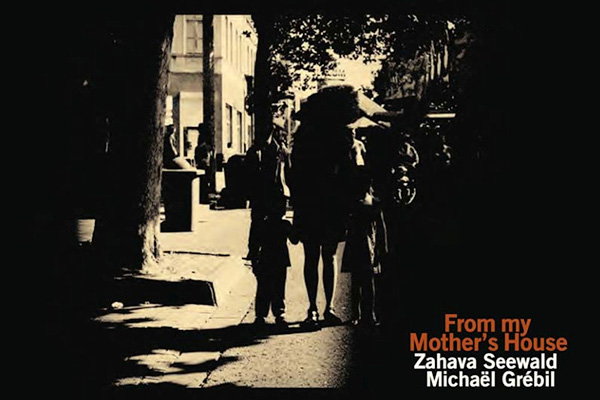Zahava Seewald & Michaël Grébil - From My Mother’s House
An opus of spine-chilling ambience and multilingual poetry.
I have had a lifelong fascination with echolocation, the act of mapping an area through the use of sound. The most obvious example is sonar – the technique bats and whales use to gauge their surroundings. Echolocation is also popular among musicians, and is used by artists to give their music a sense of environment. All it takes is the splashing of a river, a howl of a wolf, the roar of train, and suddenly it isn’t just a song anymore. It’s a place.
From My Mother’s House is a collaborative effort between poet Zahava Seewald and avant-garde musician Michaël Grébil. Seewald and Grébil use a multitude of different sounds – ambient noises, snippets of music, spoken word – to sketch dreamlike spaces for the listener to get lost in. As the album title suggests, the majority of these spaces are domestic: kitchens, hallways, attics. Through masterful application of more sinister sounds, Seewald and Grébil reveal these spaces to be of a dark and haunted nature. Sometimes it is a child or Seewald herself whispering into your ear, usually in a foreign language (French, German and Hebrew are the most common tongues spoken here). Other times it is bursts of white noise, turning the sonic picture into a television screen displaying nothing but static.
Though for a time it isn’t clear exactly which ghosts stalk this album, a narrative slowly evolves. From My Mother’s House is loosely and cryptically based on Seewald’s own grief-ridden Jewish heritage, as well as the memoirs of Auschwitz prisoner Charlotte Delbo and Hebrew poet Leah Goldberg. Sometimes these ghosts lurk at the far end of the corridor, such as on Seewald’s rendition of the traditional synagogue song “Ono Tovo.” Other times they stand breathing down your neck, like on the chilling spoken word track “Radiant Core,” where a man mutters of cutting open veins “after the Jewish city had been torn to pieces.”
I doubt any listener will be versed in all of the languages in which From My Mother’s House is spoken, and as such will not understand everything that is said. I am positive this is deliberate. Despite there being a full story told, it will only exist to the listener in fragments, echoes nodding towards a complete yet incomprehensible whole. This directly parallels the nature of echolocation on this album; disparate sounds offer glimpses of your surroundings, yet never reveal the full picture. We are hardwired to fear what we cannot see and what we do not understand, a terror Seewald and Grébil play off of brilliantly. To them, the prose and sonic locations exist in their entirety. To everybody else they exist in snippets, in half-formed images, in isolated splashes of colour and language and emotion.
Like its album cover, From My Mother’s House has more negative than positive space. There are many blindspots in the sonic environments in which you’ll find yourself, and many passages spoken in languages you do not understand. This obscurity will be enough for many people to dismiss it outright. Don’t be one of them. Surrender to From My Mother’s House, allow its scattered sounds and words to cast light upon beautiful things. You will be richly rewarded.







